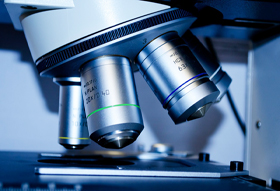
Foam News: Algae Experiment

A topic of great concern for every responsible foam manufacturer is the environment – most importantly, sustainability. Once considered one of the most difficult materials to reuse and recycle, significant innovations within the polyurethane industry are shining a new light on responsible, eco-friendly manufacture. eFoam is proud to be at the forefront of environmentally-friendly, sustainable production, which you can read more about here.
As of late, a group of researchers from the University of San Diego have managed to create the base component of polyurethane – polyols – from algae present within waste oils from algae biomass. This development came as a result of a wider research project, looking into renewable and biodegradable materials to create a number of products including fabrics, adhesives, patent leathers and fragrances.
Not only is the innovation useful for the sustainable modern foam manufacturer, but it is also an effective solution for combatting the 70% waste of microalgae seen in other industries. Unlike many other waste materials, algae is considered by many in the research field as being considered the next best renewable resource for replacing fossil fuels. Therefore, the researchers believed that if algae could hold potential for replacing such fuels, then it could also be used to produce polyurethane – a fundamental component of many everyday items.

Working with a particular type of green microalgae (N. Salina), the researchers extracted the oil from this organism as the first stage of creating the new polyol. This oil is more widely recognised as being the source for omega-3 fatty acids in dietary supplements, yet after the production of these health products, 70% of the remaining microalgae by-product is wasted or burned. In order to reduce this waste, the team discovered how to purify and convert the algae as part of the large-scale research operation. After conversion, the waste forms azelaic acid – one of the first fundamental components for all flexible polyurethanes.
This particular group of algae – N. Salina - was selected as the polyol ‘growing’ algae as it produces a significant amount of the specialist acid needed to grow the required strain (and oil) for high biomass content, and subsequently, lead to high-scale production. After purifying the resulting oil through both physical and chemical methods, the various natural metabolic components that typically prevent the required chemical reactions were removed. These reactions were then able to take place, causing a chain reaction to form polymers – and subsequently, an eco-friendly polyurethane foam.
If you would like to learn more about this industry innovation, please refer to the research paper published on this development in the Green Chemistry Journal. Alternatively, if you’d like to more about eFoam’s own environmental and sustainability practices, please contact us.

